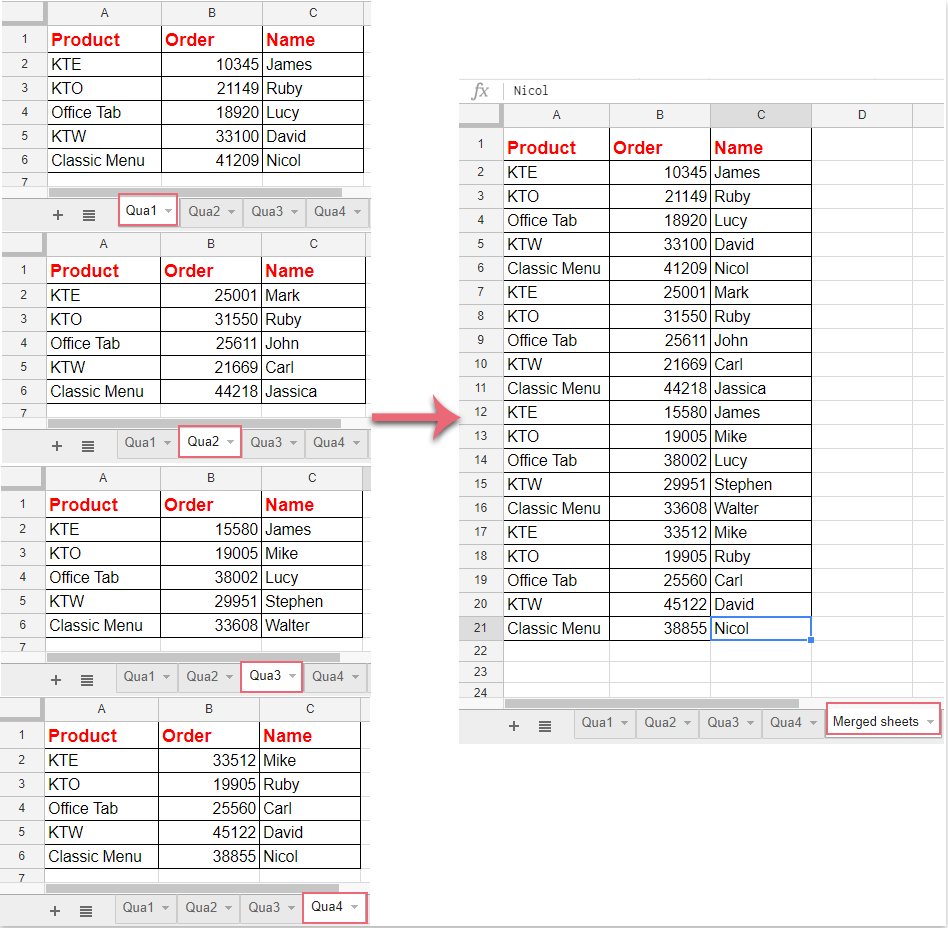Combine Multiple Excel Sheets into One Master Sheet Easily

Why Combine Excel Sheets?

In today’s data-driven environment, efficiency in managing information is not just a convenience; it’s a necessity. Imagine you are working with multiple datasets spread across different Excel sheets, all of which need to be analyzed together or compiled for a report. This scenario is common in scenarios like:
- Merging data from various departments for a comprehensive report.
- Combining sales data from different regions into one centralized database.
- Creating a master list of inventory from multiple sources.
By combining these Excel sheets into a single, coherent dataset, you can streamline your work processes, make informed decisions faster, and reduce errors associated with managing disparate data sources.
Steps to Combine Excel Sheets into One Master Sheet

Combining multiple Excel sheets into one master sheet involves several straightforward steps:
1. Preparing Your Excel Files
Before you start the process, make sure all the Excel files:
- Have a uniform structure where headers match across files.
- Are saved in a single folder for easy access.
- Are closed to prevent any locking issues during the process.
2. Using Power Query to Combine Sheets
Excel’s Power Query tool is a powerful feature for data manipulation:
- Go to Data > Get Data > From File > From Folder.
- Select the folder containing your Excel files.
- In the new window, click on Combine > Combine & Edit.
- Power Query will consolidate the data from all files, but you'll need to specify how to merge them:
Setting Up the Query
| Field | Description |
|---|---|
| Combine Files | Choose how to combine the sheets (e.g., by row, by column). |
| Transform Data | Optionally, you can modify the data as it’s loaded into your master sheet. |

🔗 Note: Remember to review the combined data to ensure headers and rows are merged correctly.
3. Finalizing the Master Sheet
After the data is combined in Power Query:
- Load the data into a new Excel worksheet.
- Format the data as needed, adding filters, sorting, and any additional formatting or formulas.
- Save your Excel file to preserve your work.
Advanced Techniques for Data Integration

For more complex scenarios, you might consider:
VBA Scripting for Automation
VBA (Visual Basic for Applications) can automate repetitive tasks, including:
- Loop through each Excel file in a directory.
- Extract specific sheets or ranges into a master sheet.
- Handle data transformations in real-time as it's being copied.
Here is a simple example of VBA code to merge sheets:
Sub CombineSheets()
Dim ws As Worksheet, wsMaster As Worksheet
Set wsMaster = ThisWorkbook.Sheets("MasterSheet")
'Loop through each workbook in the folder
For Each wb In Workbooks
For Each ws In wb.Worksheets
If ws.Name <> "MasterSheet" Then
ws.Range("A1").CurrentRegion.Copy wsMaster.Cells(Rows.Count, 1).End(xlUp).Offset(1, 0)
End If
Next ws
Next wb
End Sub
💡 Note: This script assumes all sheets have the same structure and are already open. Modify for file paths or filtering as needed.
Frequently Asked Questions

To conclude this guide on combining multiple Excel sheets, here are some frequently asked questions:
Can I combine sheets with different structures?

+
Yes, but you’ll need to align data manually or use more sophisticated Power Query or VBA solutions to manage and merge data from sheets with different structures.
How do I update the master sheet automatically when new files are added to the folder?

+
With Power Query, you can set up a query to automatically refresh when the Excel file is opened, ensuring the latest data is reflected. Alternatively, VBA can monitor the folder and trigger an update script.
What if my data files are too large for Excel?

+
For datasets beyond Excel’s capacity, consider using tools like SQL databases or specialized big data platforms like Apache Hadoop for merging and analysis.